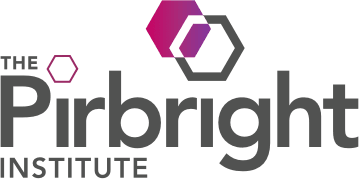Preliminary validation of direct detection of foot-and-mouth disease virus within clinical samples using reverse transcription loop-mediated isothermal amplification coupled with a simple lateral flow device for detection
Rapid, field-based diagnostic assays are desirable tools for the control of foot-and-mouth disease (FMD). Current approaches involve either; 1) Detection of FMD virus (FMDV) with immuochromatographic antigen lateral flow devices (LFD), which have relatively low analytical sensitivity, or 2) portable RT-qPCR that has high analytical sensitivity but is expensive. Loop-mediated isothermal amplification (LAMP) may provide a platform upon which to develop field based assays without these drawbacks. The objective of this study was to modify an FMDV-specific reverse transcriptionLAMP (RT-LAMP) assay to enable detection of dual-labelled LAMP products with an LFD, and to evaluate simple sample processing protocols without nucleic acid extraction. The limit of detection of this assay was demonstrated to be equivalent to that of a laboratory based real-time RT-qPCR assay and to have a 10,000 fold higher analytical sensitivity than the FMDV-specific antigen LFD currently used in the field. Importantly, this study demonstrated that FMDV RNA could be detected from epithelial suspensions without the need for prior RNA extraction, utilising a rudimentary heat source for amplification. Once optimised, this RT-LAMP-LFD protocol was able to detect multiple serotypes from field epithelial samples, in addition to detecting FMDV in the air surrounding infected cattle, pigs and sheep, including pre-clinical detection. This study describes the development and evaluation of an assay format, which may be used as a future basis for rapid and low cost detection of FMDV. In addition it provides providing proof of concept for the future use of LAMP assays to tackle other challenging diagnostic scenarios encompassing veterinary and human health.
